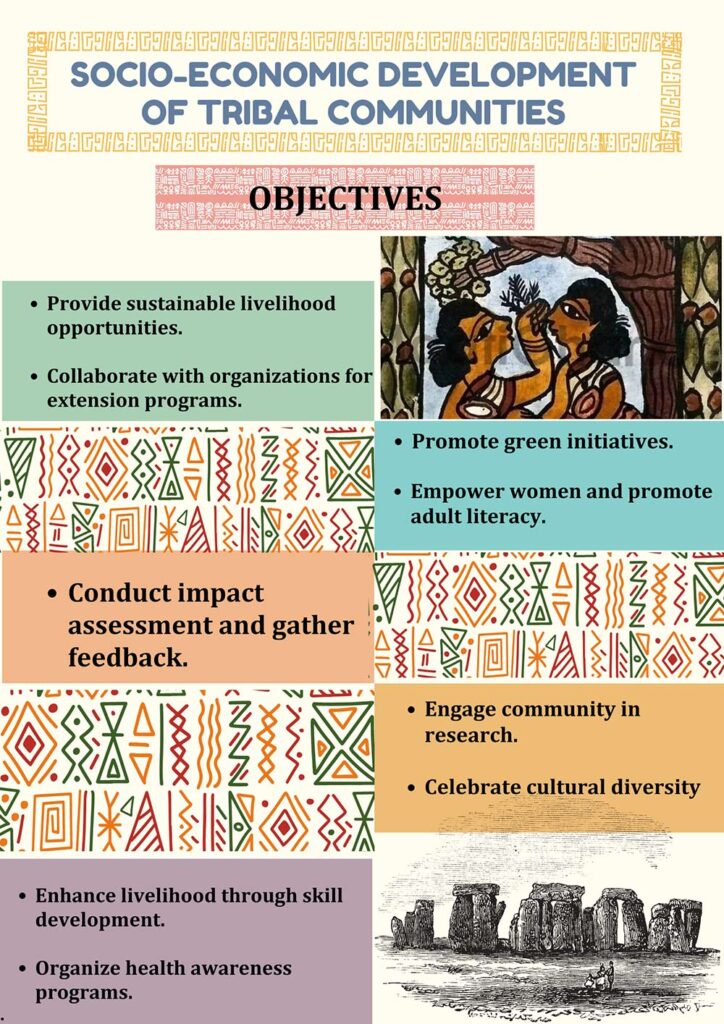Best Practice II
Objectives of the practice:
- To provide sustainable livelihood opportunities to the nearby communities of UMU for their socio economic upliftment
- Collaborative partnerships with different organisations for effective implementation of extension programs
- To enhance the livelihood of the community through different skill development workshops and training programs hence enhancing entrepreneurship skills
- Organise several health awareness programs to promote overall wellbeing in the community
- Step towards green initiatives for promotion of sustainable environment
- Women empowerment and adult literacy programs
- Community engagement in research
- Celebrate cultural diversity
Impact assessment and feedback
There are 82 villages under Angara Block of Ranchi such as Janum, Angara, Childag, Narayansoso, Berwari, Turup, Hesal, Hundru, etc. University decided to uplift the socio economic condition of the tribal community through different outreach programs. Most of the people were unaware of different technical agricultural skills. For sustainable livelihood there is a need to provide them technical knowledge on different skill development aspects by conducting different workshops, training programs, etc.
The University actively engages with rural communities through various initiatives. Students and faculty attend village surveys and gram sabha meetings, conduct Participatory Rural Appraisals (PRAs), and interact with community members to identify their specific needs and challenges. The University collaborates with local NGOs, government agencies, and community-based organizations to ensure effective extension programs. Skill development workshops, health camps, and awareness drives on topics like hygiene, nutrition, and preventive healthcare empower community members. The University also focuses on environmental sustainability through tree plantation drives and waste management campaigns. Adult literacy programs, self-defense workshops, and research projects contribute to overall community development. Events celebrating cultural diversity and a legal aid center further enhance the University’s impact.
The University’s efforts have led to increased computer literacy among students and adults in the Angara block. Farmers are now aware of the latest agricultural technologies, loan schemes, and different agricultural practices. The University has distributed seeds of various cereal and vegetable crops to farmers in the Angara community, contributing to better crop yields. Additionally, the establishment of a rural extension library at Angara Panchayat Bhawan has significantly contributed to adult literacy in the area.
In initial phase it was not easy to work among the villagers as they had lot of expectations from university for jobs. Then we could make them understand the motto of different outreach activities. How we can act as mediators between them and the government, how we can help them to rise financially through small business. In initial phase participation was less. Gradually a sense of understanding developed among them and they started connecting with us. The practices require financial support for executing the programs.


